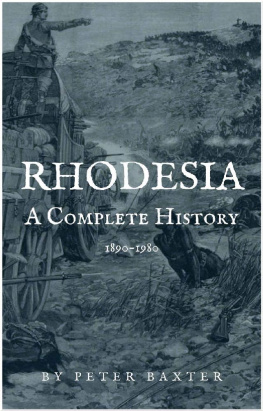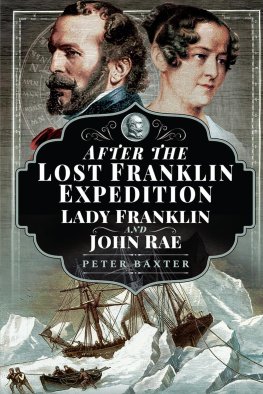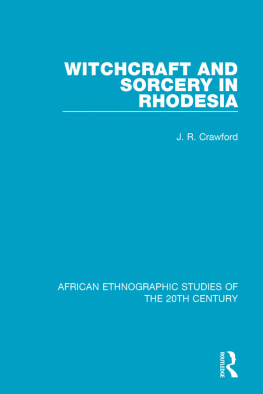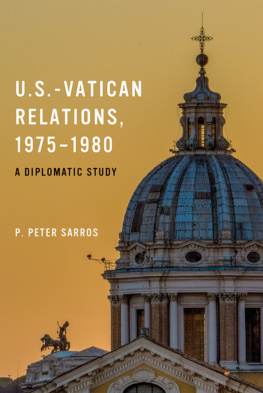Peter Baxter - Rhodesia: A Complete History 1890-1980
Here you can read online Peter Baxter - Rhodesia: A Complete History 1890-1980 full text of the book (entire story) in english for free. Download pdf and epub, get meaning, cover and reviews about this ebook. year: 2018, publisher: Peter Baxter History, genre: Religion. Description of the work, (preface) as well as reviews are available. Best literature library LitArk.com created for fans of good reading and offers a wide selection of genres:
Romance novel
Science fiction
Adventure
Detective
Science
History
Home and family
Prose
Art
Politics
Computer
Non-fiction
Religion
Business
Children
Humor
Choose a favorite category and find really read worthwhile books. Enjoy immersion in the world of imagination, feel the emotions of the characters or learn something new for yourself, make an fascinating discovery.
- Book:Rhodesia: A Complete History 1890-1980
- Author:
- Publisher:Peter Baxter History
- Genre:
- Year:2018
- Rating:4 / 5
- Favourites:Add to favourites
- Your mark:
- 80
- 1
- 2
- 3
- 4
- 5
Rhodesia: A Complete History 1890-1980: summary, description and annotation
We offer to read an annotation, description, summary or preface (depends on what the author of the book "Rhodesia: A Complete History 1890-1980" wrote himself). If you haven't found the necessary information about the book — write in the comments, we will try to find it.
Rhodesia: A Complete History 1890-1980 — read online for free the complete book (whole text) full work
Below is the text of the book, divided by pages. System saving the place of the last page read, allows you to conveniently read the book "Rhodesia: A Complete History 1890-1980" online for free, without having to search again every time where you left off. Put a bookmark, and you can go to the page where you finished reading at any time.
Font size:
Interval:
Bookmark:
RHODESIA
By
Peter Baxter
Part I
Exploration & Exploitation
1890-1923

Remember that you are an Englishman, and have consequently won the
First prize in the lottery of life
Published in 2018 by Peter Baxter History
Peter Baxter
All rights reserved. No part of this publication may be reproduced, stored, manipulated in any retrieval system, or transmitted in any mechanical, electronic form or by any other means, without the prior written authority of the publishers, except for short extracts in media reviews. Any person who engages in any unauthorised activity in relation to this publication shall be liable to criminal prosecution and claims for civil and criminal damages.
For comments and notification of typos
info@peterbaxterhistory.com

Portland, Oregon, 2018

Portugal and the Mwene Mutapa
The MaShona are a more civilised and industrious tribe than these leonine mortals [The Ndebele] among whom I sojourn and are a very superior race Robert Moffat
D octor David Livingstone, the celebrated Scottish missionary and explorer, is the man most widely credited with the discovery of the Victoria Falls. In the early 1850s, Livingstone explored the length of the Zambezi River in an extensive expedition that, although by contemporary standards was hardly the most rigorous, has since come to be regarded as one of the most iconic. Apart from the discovery of the falls themselves, Livingstone brought into the field of geographic knowledge much of the south-central interior of Africa, the virtual entirety of the Zambezi Valley, the Shire River and its tributaries and the last of the great lake formations of Africa. In memory of these enormous achievements, a large and heroic bronze statue of Livingstone stands adjacent to the Devils Cataract in Zimbabwe. From there, with a proprietary air, Livingstone surveys the hinterland that he dared hope would one day come under the sway of Christianity and commerce.
However, Livingstones were not the first cobbled boots to tread the dust of the great Zambezi Valley. Many others preceded him, but their names remain unrecognised, for they were Portuguese, not British, and quite often they were people of colour. Frequently too, their objectives were nefarious and secretive. By the time of Livingstones arrival on the Zambezi, the territory of Portuguese East Africa was experiencing an economic resurgence based on the Indian Ocean slave trade, and as a consequence, many Portuguese explorers courted anonymity. However, even if they had not, it was the British who were at that point writing the history of Africa, and to the British, as events in the region would prove time and again, coming second did not always mean losing the race.
If Livingstone ever felt that there was any irregularity in his claims of primus inter pares, he tended to fortify himself with the thought that the Portuguese were by then a spent force on the global stage, and had no business leading an enlightened world in geographic discovery. With their greatest glories behind them, and wallowing in the moral decay and the infamy of slavery, he dismissed them as an utterly effete, worn-out, used-up syphilitic race."
Whatever the moral consequences of Portuguese involvement in Africa, however, and as poor a record as they tended to have as civilisers and colonisers, it is nonetheless a tragedy that so many of their early explorations of the African interior went unrecorded. A century or more before the kindling of European enlightenment began to glow, it was Portuguese mariners who were testing the East African wind, and peering with curiosity into the dark and forbidding interior. Simple and often illiterate men the scrapings of Lisbons slums and gaols spread out from coastal settlements and moved inland to map out the trade networks that would later establish Portuguese mercantile dominance.
In an attempt to vindicate Portuguese claims to much of the African interior, then being so imperiously tramped by Livingstone, nineteenth-century Portuguese scholar Don Jos de Lacerda produced extensive documentation to support his assertion that every discovery so far attributed to Livingstone belonged already to the Portuguese. Livingstone was by then well on the way to completing the first recorded crossing of the continent from west to east, a feat that de Lacerda claimed was accomplished half a century earlier by two Portuguese explorers, Pedro Joo Baptista and Amaro Jos, both men of mixed blood. Livingstone would soon afterwards proceed north to Lake Nyasa, where, once again according to de Lacerda, the Portuguese had been before.
Much of this was true, of course, but none of it was taken particularly seriously anywhere other than in Lisbon. The pioneering accomplishments of Livingstone, and accomplishments they undoubtedly were, were hailed throughout Britain and the English-speaking world, and to his name was attached the first claim to each one. And whatever the Portuguese might say about it, that record of achievement in exploration remains Livingstones to this day.
The Portuguese chapter of the East African story begins in 1488 with one of a long sequence of great maritime achievements, in this case, the arrival at the Cape of Good Hope of a small flotilla of ships under the command of Bartolomeu Dias. Nine years later this momentous expedition was followed by a second, under the command of Vasco da Gama, who then continued around the Cape to become the first European to log a successful sea voyage to India.
As da Gama journeyed home along the East African coast, however, he was intrigued to observe a bustle of commercial activity under the broad control of Arab merchants and their local Swahili surrogates. The city-states of Mombasa, Malindi and Zanzibar dominated a network of settlements stretching from the Ilha de Moambique to the coast of Somalia. At some point, da Gama happened upon the celebrated Arab navigator and cartographer Ibn Majid, who swept his arm up the length of the East African Coast, extolling its riches and beauty. Beauty, of course, was of little interest to da Gama, but fortunes certainly were.
Then, in the harbour of Zanzibar, da Gama discovered an established trading centre founded originally by ancient Assyrians centuries before the birth of Christ, with the first Arab traders making landfall on the island in about the 1st century AD. Seasonal trade winds linked this most southerly outpost with the rest of East Africa, the Middle East, India, Southeast Asia and China. Zanzibar Island itself was initially held to have no particular value other than as a sheltered harbour from which traders were ideally positioned to interact with the mainland. The 12th century saw the establishment of the main port settlement of Zanzibar Town, and a local hierarchy heavily flavoured by Islamic culture and religion. As da Gamas flotilla drifted into the harbour that day, his ships jostled among ranks of groaning dhows, owned by Arab and Swahili traders and serviced by black slaves of widely diverse origins.
Soon he began to hear tales of an empire of gold in the adjacent interior, and his interest which further provoked his interest. It was the gold of conquered kingdoms in the in the New World that catapulted Spain to global prominence, and da Gama was tempted to believe that this might be Portugals moment of opportunity. With this news, he hurried home, and eight years later the first permanent Portuguese settlement on the East African coast was established. The site was an Arab trading village called Sofala, not far from the present day city of Beira, and probably founded sometime in the 9th century. There the Portuguese flag was hoisted, and a certain Francisco dAlmeida appointed the first official resident.
Next pageFont size:
Interval:
Bookmark:
Similar books «Rhodesia: A Complete History 1890-1980»
Look at similar books to Rhodesia: A Complete History 1890-1980. We have selected literature similar in name and meaning in the hope of providing readers with more options to find new, interesting, not yet read works.
Discussion, reviews of the book Rhodesia: A Complete History 1890-1980 and just readers' own opinions. Leave your comments, write what you think about the work, its meaning or the main characters. Specify what exactly you liked and what you didn't like, and why you think so.










![P.P.K.Walther [P.P.K.Walther] - Rhodesia’s Hangover](/uploads/posts/book/267900/thumbs/p-p-k-walther-p-p-k-walther-rhodesia-s.jpg)




